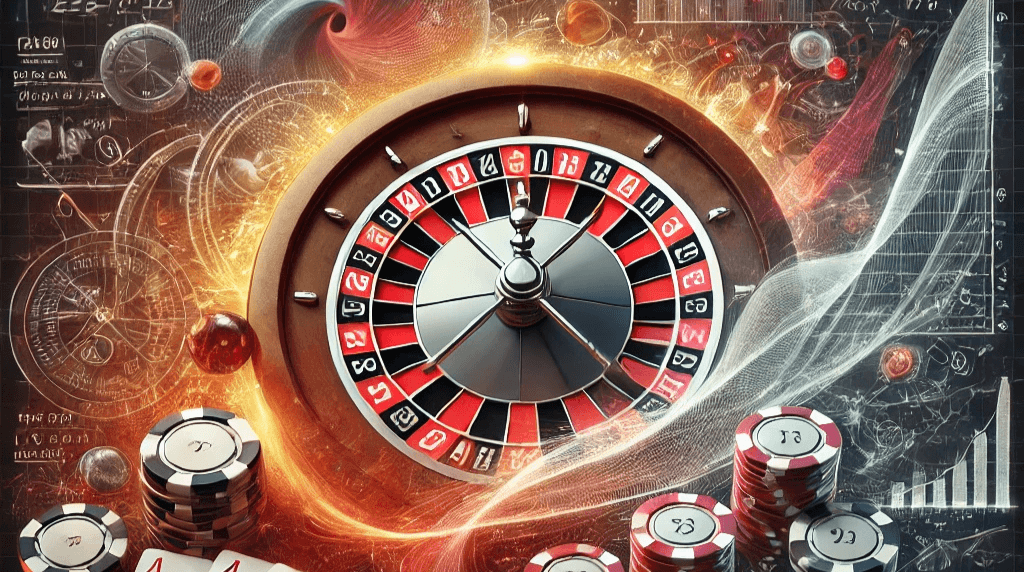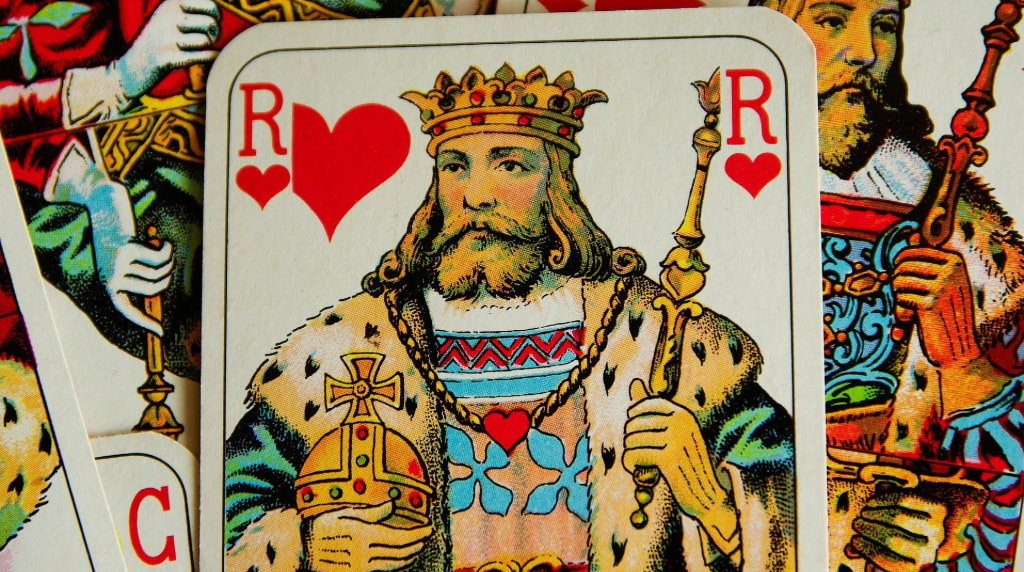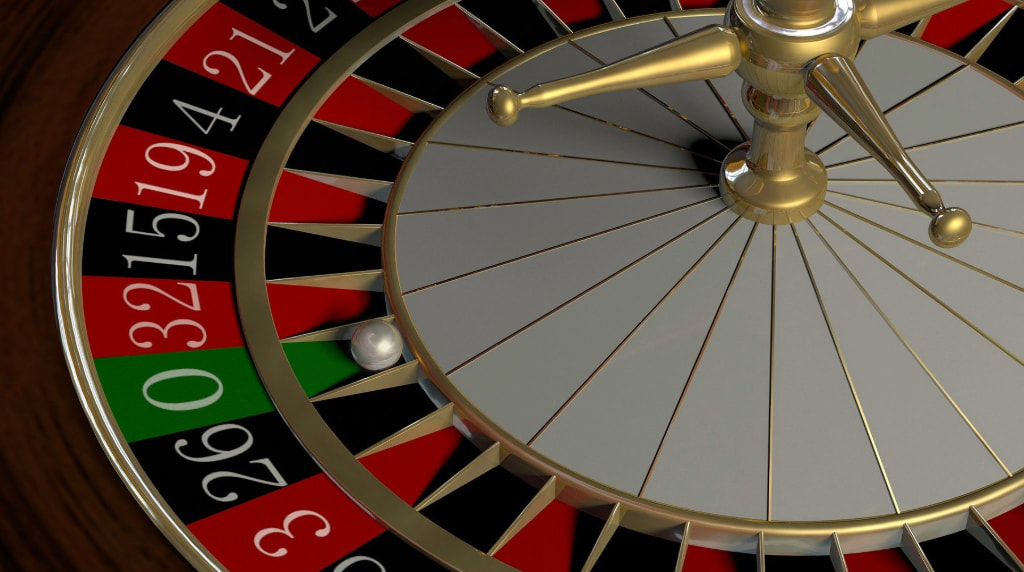The Probabilities and Payouts of Casino Games
What is the mathematics of gambling? Understanding the probabilities and payouts for casino games is crucial for managing your bankroll and making informed betting decisions.

The Math of Gambling and Casino Games. Image created by Dan Holmes, Boone Digital
This article, part of a series on gambling strategy, delves into the fascinating world of the mathematics of gambling. Understanding the underlying mathematical principles is crucial for anyone who engages in gambling, whether casually or seriously.
Why Does Gambling Mathematics Matter?
While luck undeniably plays a role, a grasp of gambling math allows players to make more informed decisions, manage their bankroll effectively, and, most importantly, understand the true nature of the games they play. This isn’t about guaranteeing wins – that’s impossible – but about understanding the odds| and making the most of your chances.
The mathematics of games and gambling revolves around probability and expected value. Probability quantifies the likelihood of a specific outcome. It’s expressed as a number between 0 (impossible) and 1 (certain), or often as a percentage.
For example, the probability of flipping a fair coin and getting heads is 0.5, or 50%. Expected value, on the other hand, represents the average outcome you can expect from a bet if you were to repeat it many times. It takes into account both the probability of winning and the payout.
A positive expected value suggests a potentially profitable bet in the long run, while a negative expected value indicates a losing proposition. The house edge, a term central to casino mathematics, is simply the casino’s expected value expressed as a percentage. It represents the casino’s advantage over the player in any game.
Games Where Math Principles Apply
Let’s explore how these concepts apply to specific games found in real money online casinos.
Slots
Slot machines are notorious for their high house edge. While the flashing lights and enticing sounds might suggest otherwise, the reality is that slots are primarily games of chance governed by complex algorithms called random number generators (RNGs).
These RNGs determine the outcome of each spin independently, ensuring that past results have no bearing on future spins. The mathematics of gambling in slots is straightforward from the casino’s perspective: they set the probabilities of different symbol combinations, and the payout structure ensures a long-term profit for the house.
For example, a slot machine might display a jackpot of $1,000, but the probability of hitting that jackpot could be incredibly low, making the expected value of each spin heavily tilted in the casino’s favor. Players cannot influence the outcome, making slots a game with minimal strategic input and a heavy reliance on luck.
Roulette
Roulette offers a slightly more transparent look into betting mathematics. A European roulette wheel has 37 numbered slots (0-36), while an American wheel adds a double zero, increasing the house edge. The probabilities are easily calculable. For instance, the probability of a single number hitting on a European wheel is 1/37.
The payout for a winning single-number bet is typically 35 to 1. However, the expected value of this bet is negative because the true odds are slightly worse than the payout offered. This difference represents the house edge. Different bets in roulette have varying probabilities and payouts for casino mathematics, but the house edge remains consistent for most bets on a single wheel.
Baccarat
Baccarat, often perceived as a sophisticated game, also relies heavily on the mathematics of games and gambling. The game essentially boils down to betting on either the “Player”, the “Banker” hand, or a tie.
Baccarat, often perceived as a sophisticated game, also relies heavily on the mathematics of games and gambling. The game essentially boils down to betting on either the “Player”, the “Banker” hand, or a tie.
While the scoring rules might seem complex initially, the underlying probabilities are relatively straightforward. The Banker hand has a slightly higher probability of winning than the Player hand, but casinos often apply a commission to Banker wins to offset this advantage. Betting mathematics in baccarat is primarily about understanding these probabilities and the implications of the commission.
There’s minimal player decision-making involved in in the game, making it another option where understanding the odds is paramount.
Blackjack
Blackjack, unlike slots or roulette, involves an element of skill. While luck is still a factor, players can make decisions that influence the outcome of the hand. This is where betting mathematics and strategy intersect.
A basic strategy and rules dictate the optimal action (hit, stand, double down, split) for every possible hand combination.
Players can minimize the house edge and improve their odds by adhering to different strategies, such as card counting. Although a more advanced technique, it involves tracking the ratio of high cards to low cards remaining in the deck.
This information allows skilled players to adjust their bets and playing decisions to capitalize on favorable situations. However, card counting is complex and not always feasible, especially in casinos that use multiple decks or continuous shuffling machines.
The rise of online blackjack has made basic strategy readily available to players, but it is important to understand the mathematics behind it to use it effectively.
Poker
Casino Poker games involve a greater degree of skill than most other options. While the initial hand dealt is a matter of chance, the subsequent betting rounds involve strategic decision-making based on probabilities, psychology, and game theory.
The mathematics of gambling in poker is complex and multifaceted. Players need to calculate:
- Pot odds – the ratio of the current bet to the size of the pot
- Implied odds – the potential future winnings from a hand
- Probabilities of different hand combinations
Understanding these concepts is essential for making informed betting decisions, bluffing effectively, and maximizing your chances of winning.
While luck plays a role in the short term, skillful players who understand the mathematics of poker have a significant advantage over less experienced opponents in the long run.
What Your Main Objective Should Be
Understanding the mathematics of gambling is not about finding a foolproof system to beat the casino – such a system doesn’t exist. It’s about understanding the odds, making informed decisions, and managing your bankroll responsibly.
By grasping the basic principles of probability and expected value, you can approach gambling with a more realistic perspective and avoid falling prey to common misconceptions.
The mathematics of games and gambling offers valuable insights into the nature of these games, empowering you to make the most of your gambling experience.
Our Advice
Want to delve deeper into gambling strategy and further explore the intersection of math and gambling? Research different betting systems, explore advanced card counting techniques, and learn more about the nuances of poker probability.
The more you understand the mathematics of games and gambling, the better you can make informed decisions and enjoy your time at the tables or online.




